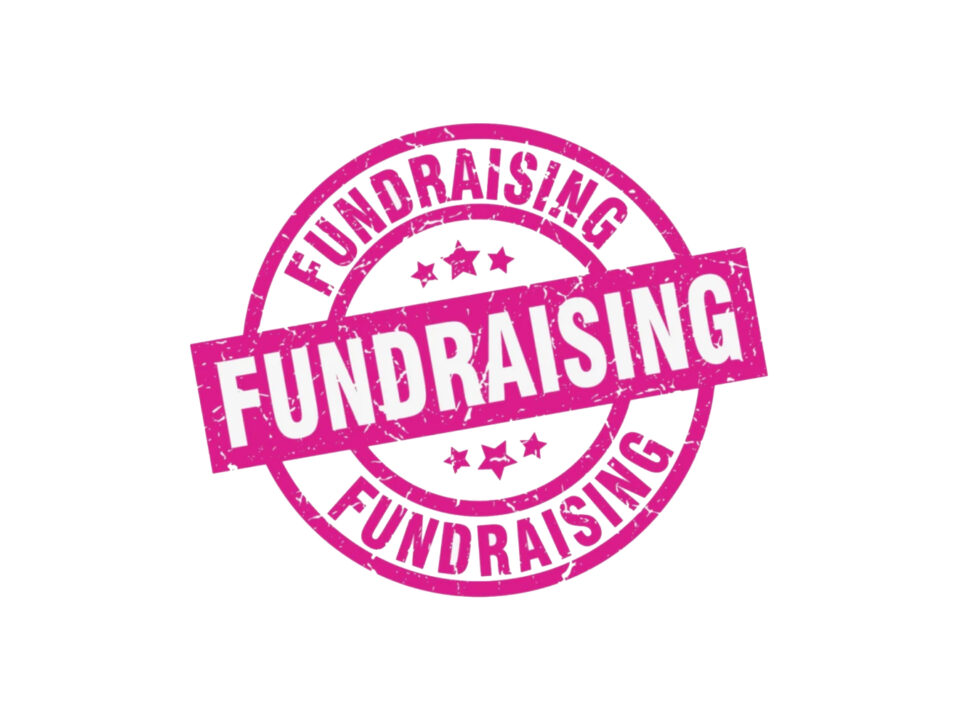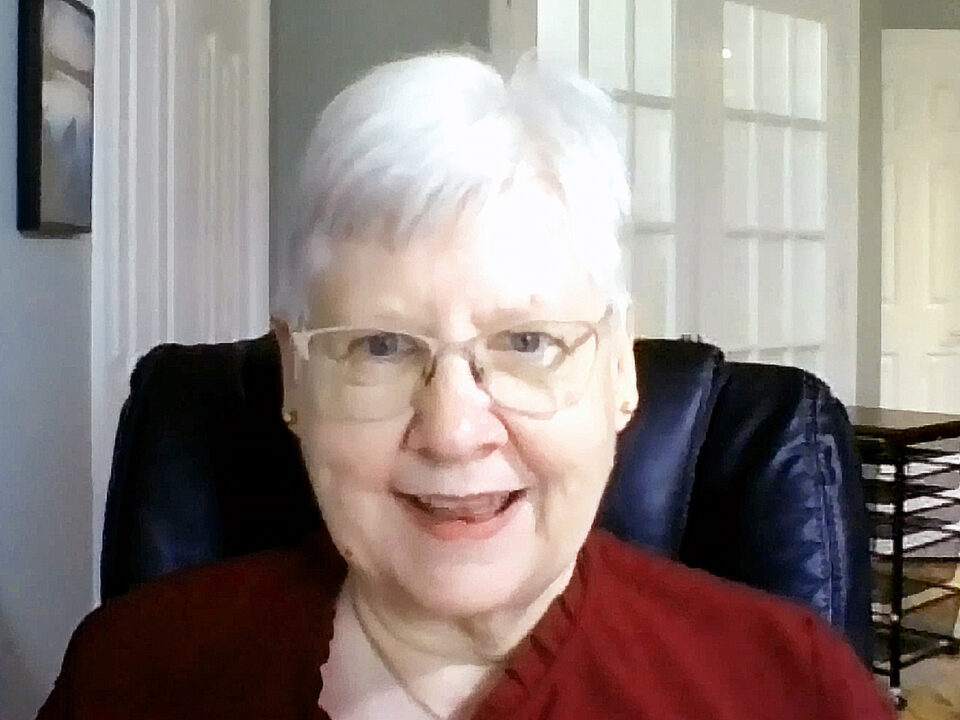Listening Your Way to a Major Gift With Hall Powell contains the sage wisdom of one of our Nation’s greatest fundraisers. Hall Powell has worked for decades to raise millions that save and transform lives. Let’s hear what this legend has to share about the most graceful way to invite a person to make a significant financial investment in your important mission.
In the fifth year of our marriage, I left the family business of independent insurance agents and went to work for Johnson & Johnson. I was appointed to be a territorial manager for a new division named JELCO which manufactured intravenous catheters, disposable syringes, and other related products. Also, I was asked to be a sales trainer for newly hired sales people, teaching them on-the-job as we visited hospitals, physicians, and medical supply customers (our dealers). The “newbies” would shadow me during the daytime as we worked the process of selling our products, observing how I presented our products to medical staffs and purchasing agents in hospitals and our dealers. At night, in the hotel, I would do more training on product information and sales techniques.
It didn’t take me long to realize that the most successful sales people were the ones who were the best listeners and knew how to “close the deal.”
“But…I am not trying sell syringes and catheters; I need to raise major gifts for a nonprofit organization” you say. I understand, and I intend on helping you be successful, just like the ones with J&J were.
Assuming you have qualified prospects for major gifts fundraising (another subject for another article), you presumably work your way to making the ask. When you have gotten to the place in your relationship with your donor where it is appropriate to make the ask, all the “techniques” of making the ask can fall flat if you don’t heed one major factor of the process of asking. The primary reasons for failure in in major gift fundraising is an inability to listen and a reluctance to make the ask.
Listening Your Way to a Major Gift w Hall Powell
Some of the “newbies” JELCO sent me to train had superb product knowledge, could tell a prospective surgeon or purchasing agent all the minute details about our products, but could not “close the deal.” Why? Because they were more proficient and interested in telling all they knew about the products than they were in making the sale, getting the Purchase Order. I used to tell them, “You talked all over the sell.” There is a time to talk (sell) and a time to listen to the one(s) who are listening to you. If you will listen to your prospect he or she will tell you when they are ready to be asked; maybe not directly in words: “I am ready to bed asked,” but in facial expression, gestures, or (more importantly) in response to questions you ask them. Permit me to illustrate:
Meet Hall & Jimmy
Let’s call our MAJOR GIFT FUNDRAISER…Hall (ME!)
Let’s call our MAJOR GIFT PROSPECT…Jimmy
Hall – Jimmy, knowing your interest in providing world-class healthcare for people in developing countries, I sent you a document that describes all we do that is unique in the field of medical mission. Have you had the opportunity to review it? (Listen).
Jimmy – Yes, I did
Hall – Is there anything you read not clear, or need more information about? (Listen)
Jimmy – Yes. Hall, is this project sustainable long-term? If so, what do you mean by sustainability?
Hall – I am so glad you asked that. It is unique to our organization. Our ultimate goal is to ultimately help the nonprofit hospitals, clinics, and nursing schools to be self-sustainable at some point in the future. The way we will do that is we partner with local religious and medical leaders in developing countries to equip their medical ministries with supplies, facilities, and training they need. Our goal is that ultimately by helping them to develop their own country-wide network that in turn create jobs in their local communities, and in turn help to benefit their economy, that at some point they can be self-sufficient and not need outside help.
(Listen)
Jimmy – Wow! That’s powerful.
Hall – Jimmy, it is only by donors like you can we achieve our goal of helping millions of people in developing countries to have healthcare systems providing evidence-based, international standards of medical care. Would you consider making a gift of (it is best to suggest an amount you want the donor to consider)? (Listen)
After the ask, listen. Let the prospect make the next step in the conversation. There could be an immediate response or a momentary quiet period of contemplation. I may be that the prospect might need more information or time to consider the ask. I might say,
Hall – Jimmy, would you like to ponder this for a day or two? (If, “Yes” then ask) When would be a good time for me to get back with you? How about next week at this same time? (Don’t leave a response open-ended). (Listen)
It is not unusual for a prospective donor to want some time to make a decision. The main thing is to leave the prospect with an expectation of a deadline for a follow-up conversation about her/his commitment.
Listening is the key to success in human relations and fundraising. By listening we are showing deference and respect to everyone. By listening we are saying, I care about you; your thoughts and needs are important. I want to understand you. It is not all about me (or my organization). Listening means that we should put the needs of the donor first, not our needs. Sometimes, that even means deferring to a decision from the prospective donor that you don’t want to hear. But, in the willingness to hear his or her preference or need might send them the message that we sincerely care about them.
I recall a major gift campaign I was conducting for a major medical center years ago. We needed $37 million to build an advanced cancer institute facility, and I had a prospective donor who had the ability to make a significant seven-figure gift if he and his wife were so inclined. I knew the people socially, and had made the steps necessary to approach them for an ask of a gift. When I met with them and reviewed our project case with them, similarly as illustrated (in type) above, I made the ask: John and Pat, having reviewed our project plan and need for funding, would you be willing to consider a $1 million gift to our campaign. To which they replied, “Hall, we think this project is extremely important for our community, and we will give a significant gift, but not at the level you are suggesting. However, when it is time to raise the money to build the new children’s hospital, please come see us.”
You see, their passion was for children. While they did make a significant five-figure gift to our campaign, when it came time to ask them for a lead gift to the children’s hospital campaign, they were faithful to their verbal commitment with me and made a larger gift to that campaign. Always remember: The best philanthropic gift is the one that meets the need of the donor to give, not my need to receive.
Listen to yourself. Hear (think about) what you are saying to the prospective donor. Ask yourself: Is it showing deference, sensitivity to the donor’s interests? Be thoughtful before you speak. Think about:
- How to respond to questions, concerns and objections.
- Have I answered his or her objections?
- Have I expressed empathy for their needs and desires?
- Discern whether or not your donor or audience is hearing through filters. Have they been “tainted” by previous bad experiences with other people or organizations?
I think many people don’t know the difference between hearing and listening. You can hear and still not listen. Staying quiet does not mean you listen. Someone else’s conversation can just be noise while you pretend to listen, or you can truly listen demonstrating that you really care about them and what they are saying. If you are a person who is easily distracted, you might have to work at focusing on what someone is saying and not allow yourself to be distracted. That can be very difficult, especially for those who are actually prone to attention deficit.
Finally (are you listening?), listening builds trust. Listening makes people think you are really interested in them – their needs, opinions, ideas, reservations, objections, fears. goals, aspirations, etc. And when you build trust, a person is more interested in hearing you.
To those who have ears to hear, listen! Listening builds trust, which allows the listener (you) to ask the right questions. For example:
Tom, thank you for sharing your thoughts about our project with you. I really hear your heart in what you are saying. In light of that, it seems that what we are proposing would fit in with what your aspirations for women and children’s needs for adequate healthcare. Am I right is saying that? (Pause, and listen).
If “Yes”: Wonderful. Would a gift of (suggest an amount of money) fit into your charitable budget at this time?
If “No” or “Not sure” determine if the potential donor needs more information or time to consider the gift. It could be a timing issue for the donor. Do not leave aa response open-ended. Offer to give them time to consider your request, and tell them that you will call back soon to hear their decision.
I agree with David Broder. Listening is an opportunity. An opportunity to build trust and long-term relationships. Listen your way to success, in all things.
Listening Your Way to a Major Gift With Hall Powell was first posted at Development Systems International
For more articles like Listening Your Way to a Major Gift With Hall Powell VISIT HERE
About The Author:
 Hall Powell has served as Senior Vice President of Development Systems International (DSI) for more than a decade and has 40 years of fundraising experience, including 19 as a fundraising consultant. He has provided campaign and development counsel to a wide variety of institutions throughout the country, with special emphasis in the healthcare field. Prior to joining DSI, Hall was senior consultant with the fundraising consulting firm Alexander Hass of Atlanta, Georgia. Previously, Hall served as the Executive Vice President of the Memorial Health Foundation, Inc. in Savannah, Georgia, and the founding Executive Director of the New Hanover Regional Medical Center Foundation, Inc., in Wilmington, North Carolina. He spent more than four years as the founding Director of the Amethyst Foundation in Charlotte where he played a significant role in the development of a nonprofit management seminar for Winthrop University. He also served as Director of Graduate Administration at Winthrop and was responsible for directing the Executive MBA Program as an Associate Professor in the Management Department. A seasoned lecturer in the nonprofit sector, Hall has also been an instructor with the Duke University Nonprofit Management Seminar. A Certified fundraising Executive, Hall Powell has served on the national board of directors of the National Society of Fundraising Executives, now known as the Association of Fundraising Professionals (AFP). He has also been instrumental in forming two AFP chapters. He holds an undergraduate degree from Guilford College and an MBA from Winthrop University. Hall Powell also engaged in graduate studies at Columbia International University. In his role as a fundraising counselor, Hall Powell is a strong advocate of the underlying philosophy of “donor-centered fundraising,” meeting the need of the donor to give, not putting the needs of the nonprofit organization as the primary motive for the donor/institution relationship. With this underlying philosophy for building comprehensive fundraising programs for institutions he served as Chief Development Officer, and for those he serves as fundraising counsel, he supports the Major Gifts Ramp Up Model. The model, accurately presented in 13 chapters built upon tried and proven best practices for successful major gifts fundraising, emphasizes building capacity for the nonprofit organization and long-term donor relationships. Finally Hall, is the author of The Missing Link: A Guide to Spiritual Reality
Hall Powell has served as Senior Vice President of Development Systems International (DSI) for more than a decade and has 40 years of fundraising experience, including 19 as a fundraising consultant. He has provided campaign and development counsel to a wide variety of institutions throughout the country, with special emphasis in the healthcare field. Prior to joining DSI, Hall was senior consultant with the fundraising consulting firm Alexander Hass of Atlanta, Georgia. Previously, Hall served as the Executive Vice President of the Memorial Health Foundation, Inc. in Savannah, Georgia, and the founding Executive Director of the New Hanover Regional Medical Center Foundation, Inc., in Wilmington, North Carolina. He spent more than four years as the founding Director of the Amethyst Foundation in Charlotte where he played a significant role in the development of a nonprofit management seminar for Winthrop University. He also served as Director of Graduate Administration at Winthrop and was responsible for directing the Executive MBA Program as an Associate Professor in the Management Department. A seasoned lecturer in the nonprofit sector, Hall has also been an instructor with the Duke University Nonprofit Management Seminar. A Certified fundraising Executive, Hall Powell has served on the national board of directors of the National Society of Fundraising Executives, now known as the Association of Fundraising Professionals (AFP). He has also been instrumental in forming two AFP chapters. He holds an undergraduate degree from Guilford College and an MBA from Winthrop University. Hall Powell also engaged in graduate studies at Columbia International University. In his role as a fundraising counselor, Hall Powell is a strong advocate of the underlying philosophy of “donor-centered fundraising,” meeting the need of the donor to give, not putting the needs of the nonprofit organization as the primary motive for the donor/institution relationship. With this underlying philosophy for building comprehensive fundraising programs for institutions he served as Chief Development Officer, and for those he serves as fundraising counsel, he supports the Major Gifts Ramp Up Model. The model, accurately presented in 13 chapters built upon tried and proven best practices for successful major gifts fundraising, emphasizes building capacity for the nonprofit organization and long-term donor relationships. Finally Hall, is the author of The Missing Link: A Guide to Spiritual Reality


